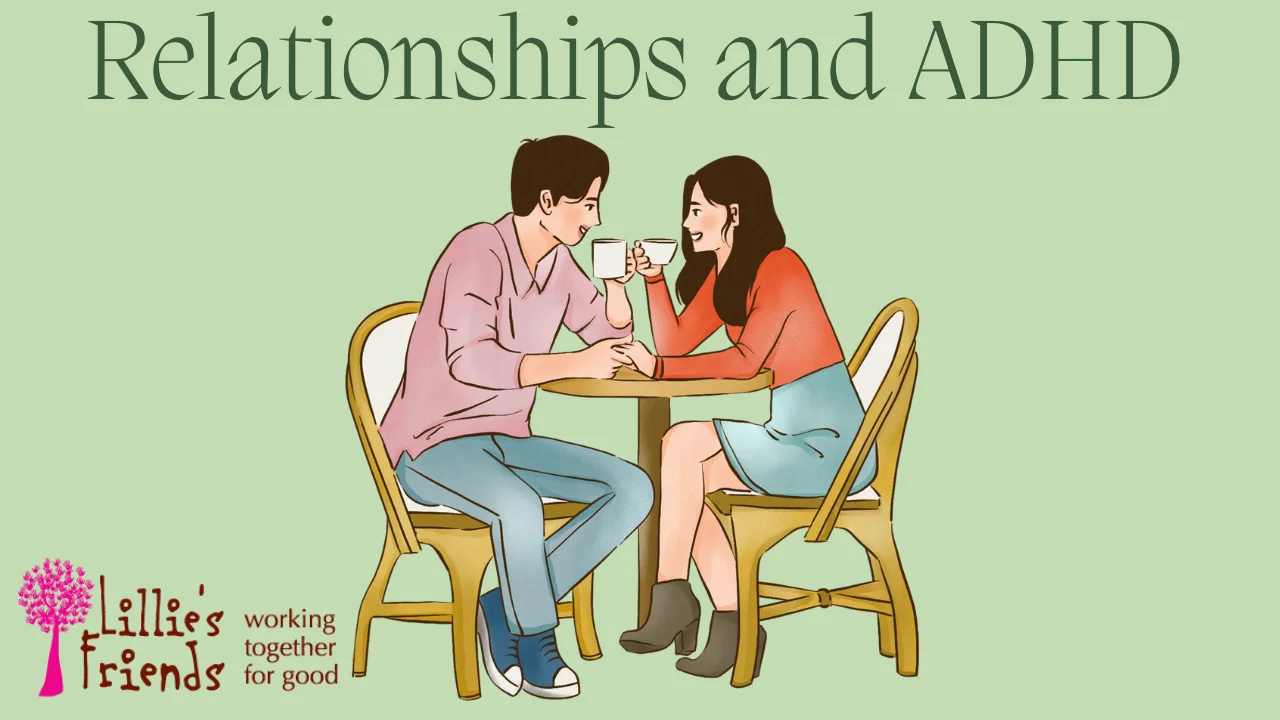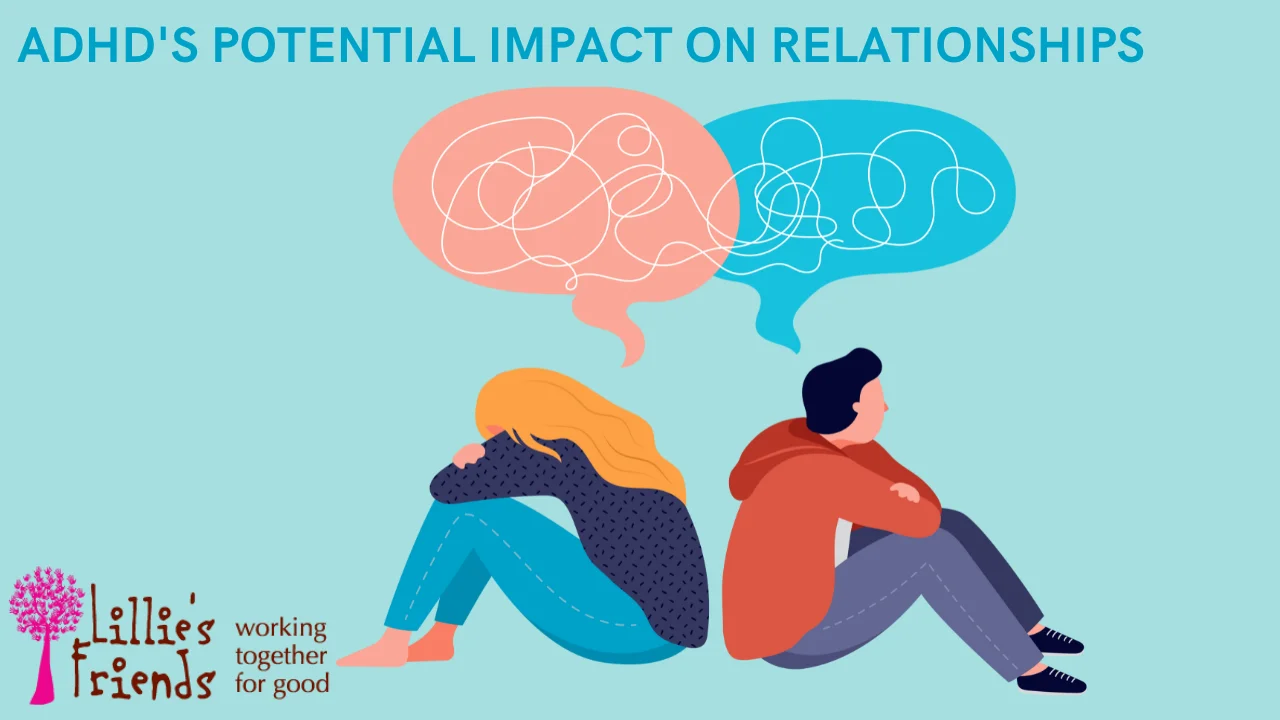What effects does ADHD have on relationships? According to some research, the likelihood of a marriage ending in divorce is doubled when one of the spouses has ADHD. For someone with ADHD, it could seem frightening, but there are workable alternatives that might be helpful.
Some couples have figured out how to make the most of their long-term partnerships in spite of the illness. We’ll tell you those secrets. Let’s first examine the potential effects of untreated ADHD on relationships in adulthood.

Relationships and ADHD
Relationships with ADHD-afflicted partners may sometimes have more issues than normal. A contributing factor [1*] to these issues is hyperactivity [2*] and impulsive symptoms. The majority of ADHD sufferers are agitated and find it difficult to settle arguments amicably. Their irritability causes them to take offense too often.
Couples may begin to argue over trivial matters. Regretfully, impulsivity makes it challenging to deliberate before behaving. Emotional outbursts may sometimes accompany screaming. Instead of alleviating the issues, such responses make things worse.
Problems in a relationship may also arise from a lack of understanding between an individual with a disability and their partner. Because of their disparate points of view, each individual believes they are correct and the other is incorrect. Let’s examine the emotions of those in these types of marriages to have a deeper comprehension.
How an ADHD Person’s Partner Feels
If you’re dating someone with ADHD, you might occasionally question whether your spouse truly loves you. That’s because they could sometimes have mood swings. They shower you with affection one day and then decide they don’t feel like doing anything the next. Among the unpleasant behaviors shown by a spouse with ADHD are:
- failing to make timely bill payments, which might cause significant annoyances.
- speaking to them while distracted, which causes you to say the same thing again and over.
- unable to do tasks on schedule.
- not maintaining housekeeping organization.
You could have to do the majority of the task from home as the accountable partner. Doing everything will make you feel overwhelmed, which can lead to frequent arguments with your spouse. You may feel the following in the relationship:
- feeling ignored by your lover when they don’t appear to be interested in you.
- feeling as if you should tread carefully as your companion can become too sensitive to whatever you say or do.
- cleaning up after your significant other’s mess.
- having the impression that, as the responsible spouse, you must handle everything yourself.
The Emotions of an ADHD Individual
Love relationships and ADHD might be fascinating at first. Meeting new people makes you more attentive since the new connection acts as a dopamine booster. However, as the partnership develops, the initial enthusiasm wanes. When your lover sees the negative traits, they start to worry.
If they are unaware that you have ADHD, they may assume you are acting on purpose and they may attempt to manipulate you. As a result, you may experience miscommunication and micromanagement. You’ll lose hyperfocus and eventually get bored, losing the early spark in your connection.
Some individuals with ADHD search for methods to end relationships when they get to this point. Some begin to annoy their spouses, while others cheat on them. They eventually stop talking to each other, become emotionally distant, and lose interest in the close connection. The individual suffering from ADHD could hop about in relationships in an attempt to locate another source of dopamine.
How to Handle ADHD in Partnerships
ADHD and marriage might present difficulties, but their existence does not mean you should divorce your spouse. Several couples have persevered in spite of the circumstances. What keeps them so secret? They worked more intelligently rather than harder. It all comes down to comprehending the issue.
When ADHD is misdiagnosed, relationship issues [3*] become more difficult to handle. You end up employing improper strategies because you don’t know what you’re up against. Thus, acquiring a diagnosis of ADHD is the first step toward a remedy.
You will have a more profound understanding of your behavior after the diagnosis. When your spouse realizes you don’t make errors deliberately, they will become more understanding. ADHD won’t be your ally; instead, it will become your nemesis. Thereafter, you may collaborate to identify answers.
The following are some strategies to manage ADHD and enhance your relationships:
- Steer clear of criticism. Describe how your partner’s actions impact you rather than condemning them. When a disagreement starts, go away and give your spouse some space. When they’re not upset, resolve the issue later.
- Steer clear of the parent-child dynamic. In a marriage, there are two adult spouses. Don’t provide directives to children the way a parent would. Your spouse will begin to feel controlled by you and will revolt as a result.
- Determine the causes. Determine what makes your spouse respond negatively, then work to avoid or get around it. In the same vein, find out what makes you happy and do it.
- Pay attention to their advantages. There’s something that pulls you toward your lover even with ADHD. why you choose to stay with them. Pay attention to that and any good traits they may have. Occasionally compliment them on their accomplishments.
- Employ prompts. Put significant things on paper and place the reminder wherever you’ll see it to help you remember them.
In summary
Each partner in a strong relationship has to be trustworthy and accessible when required. Sometimes you may feel that your spouse with ADHD is erratic. Relationships with persons who have ADHD are thus more difficult. However, being aware of how ADHD impacts a person’s personality may be very beneficial. You’ll become more understanding and encouraging.
Additionally, collaborate with your spouse to identify solutions if you are the one with ADHD. Admit you have a problem and get medical assistance. While medication may help lessen the symptoms of ADHD, therapy can provide a long-term solution for behavior management.











